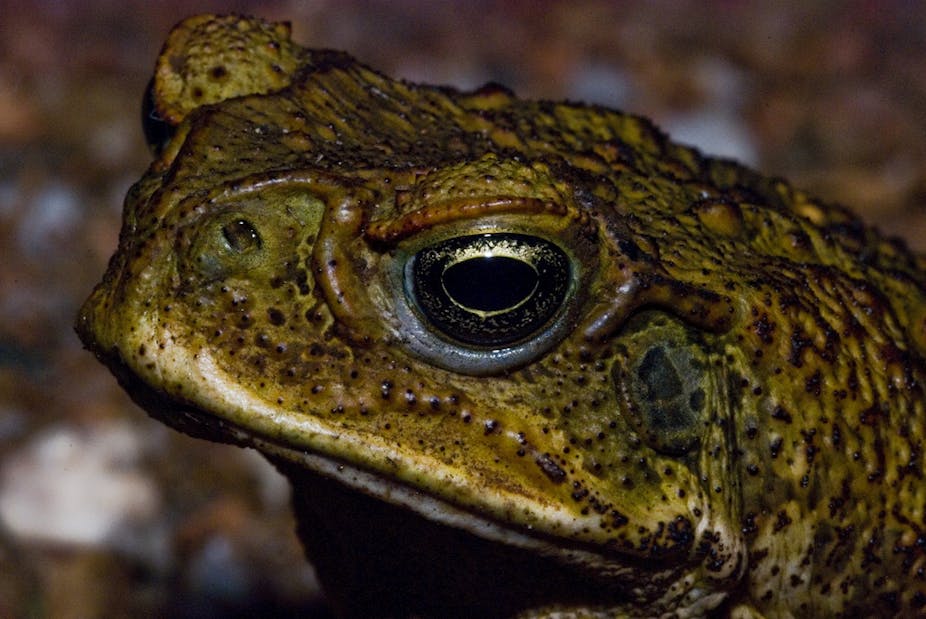
A chemical produced naturally by cane toad tadpoles may one day be used to help control the invasive species, according to new research published today.
Cane toads are native to South America but have overrun Northern Australia since being introduced in 1935.
Efforts to control the outbreak have been stymied by the toad’s impressive rate of reproduction; the warty amphibians lay up to 30,000 eggs at a time, crowding out native frogs, which produce only 3000 eggs per clutch.
However, a new ARC-funded study by scientists from the University of Sydney found that cane toad tadpoles produce a chemical that ‘poisons’ competing cane toad tadpole eggs. They hope the chemical may one day be used in the battle against the invasive species.
“A toad is another toad’s worst enemy. If you are a toad tadpole, you really love to get rid of the opposition by killing any eggs as soon as they are laid,” said Rick Shine, Professor in Evolutionary Biology at University of Sydney and co-author of the study.
“What we discovered is that toad tadpoles have a very cunning chemical which has the effect of really substantially disturbing the development of eggs laid in the same pond.”
The chemical, which the researchers are yet to isolate, identify or name, is emitted by tadpoles and causes competing cane toad eggs from another clutch to develop into tiny toads unlikely to survive.
“It’s chemical warfare in the pond,” said Professor Shine.
The chemical has already likely helped control the cane toad population to some extent in nature, meaning Australia’s cane toad problem could have been a lot worse.
If the chemical can be isolated, produced commercially and tested to ensure it doesn’t also poison native species, it may one day be used to stop cane toad eggs developing into adults.
The researchers have published a paper on the study in the journal Biology Letters.
Associate Professor Mike Tyler, a cane toad expert from the University of Adelaide’s Department of Ecology and Evolutionary Biology, said the research was interesting but that it was no silver bullet.
“It’s not God’s answer to a bad problem,” he said.
Even if the chemical could be identified and produced in large quantities, it may not be enough to stop cane toads, said Associate Professor Tyler, who was not involved in the study.
“It’s a fascinating bit of work but certainly of no consequence in terms of biological control,” he said. “The cane toad occupies 1.5 million square kilometres. No chemical will have any impact whatsoever on that scale.”

